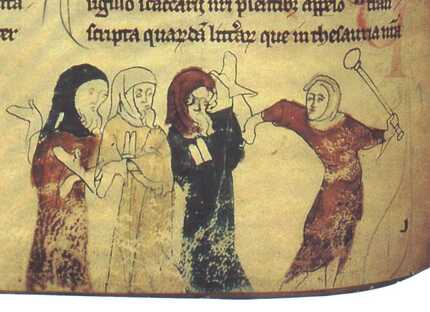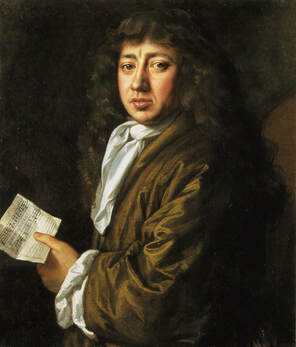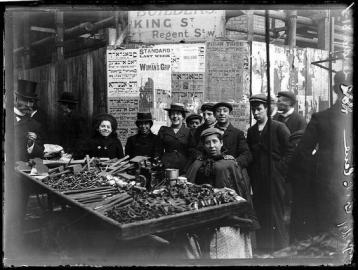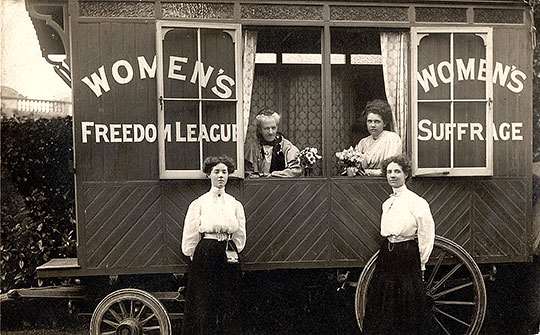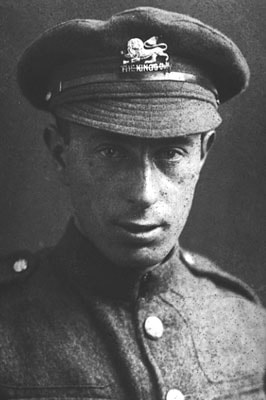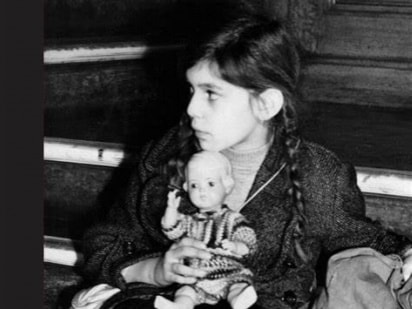Mosaic Voices is now working on a landmark and historic new musical and educational project, The Jews of Britain, telling the story through music of the UK’s oldest immigrant community, the Jewish community. At a time of resurgence of antisemitism as well as the delegitimisation of the Jewish community, creative and educational work like this is crucial way of opening a window onto Jewish life and exploring Jewish roots in Britain, which are almost 1,000 years old.
In this ambitious, ten-movement work, Mosaic Voices' Resident Composer Benjamin Till will chart British Jewry from the arrival of Jewish immigrants with the Normans in 1066 to their expulsion in 1290, and the re-emergence of the community in the mid-17th Century through to the present day.
This 45-minute composition will run chronologically, with each movement detailing a different period in Anglo-Jewish history. The multi-lingual texts featured in the piece will include liturgical poems, folk songs, newspaper articles, diaries, art works, historical archive as well as interviews with living people. The Jews of Britain will be scored for string orchestra, keyboards and five voices (the four singers of Mosaic Voices and female alto.). The music will blend ancient Jewish modes and motifs with British folk song in a soaring, educational, moving, spiritual and, above-all, an eye-opening work.
The major musical work will be premiered at a live performance at a prestigious central London venue and a high-end album of the work will be recorded and released on all major platforms. Mosaic Voices will also be commissioning emerging filmmakers to make films of some of the movements. We anticipate national radio broadcast of parts or all of this work.
The Jews of Britain: Movement by Movement
Movement One (1066-1190): The Golden Age. Jews are encouraged to come to the UK by William I and prosper under Henry II, with significant communities established in London, Oxford, Northampton, York, Norwich, Bristol and Lincoln.
Movement Two (1190-1290): Blood Libel. Crusades in the Middle East and resentment of English Jews position as money lenders to the royal court leads to wide-spread antisemitism. The entire Jewish community in the City of York is murdered or commits suicide, 18 Jews from Lincoln are hanged for the “murder” of a young Christian boy who actually died in an accident, and Edward I forces English Jews to wear yellow patches. In 1290, Edward I expels all Jews from England allowing them to leave only with what they could carry.
In this ambitious, ten-movement work, Mosaic Voices' Resident Composer Benjamin Till will chart British Jewry from the arrival of Jewish immigrants with the Normans in 1066 to their expulsion in 1290, and the re-emergence of the community in the mid-17th Century through to the present day.
This 45-minute composition will run chronologically, with each movement detailing a different period in Anglo-Jewish history. The multi-lingual texts featured in the piece will include liturgical poems, folk songs, newspaper articles, diaries, art works, historical archive as well as interviews with living people. The Jews of Britain will be scored for string orchestra, keyboards and five voices (the four singers of Mosaic Voices and female alto.). The music will blend ancient Jewish modes and motifs with British folk song in a soaring, educational, moving, spiritual and, above-all, an eye-opening work.
The major musical work will be premiered at a live performance at a prestigious central London venue and a high-end album of the work will be recorded and released on all major platforms. Mosaic Voices will also be commissioning emerging filmmakers to make films of some of the movements. We anticipate national radio broadcast of parts or all of this work.
The Jews of Britain: Movement by Movement
Movement One (1066-1190): The Golden Age. Jews are encouraged to come to the UK by William I and prosper under Henry II, with significant communities established in London, Oxford, Northampton, York, Norwich, Bristol and Lincoln.
Movement Two (1190-1290): Blood Libel. Crusades in the Middle East and resentment of English Jews position as money lenders to the royal court leads to wide-spread antisemitism. The entire Jewish community in the City of York is murdered or commits suicide, 18 Jews from Lincoln are hanged for the “murder” of a young Christian boy who actually died in an accident, and Edward I forces English Jews to wear yellow patches. In 1290, Edward I expels all Jews from England allowing them to leave only with what they could carry.
Movement Three (1290-1612): Domus Conversorum. In 1290, a “House of the Converts” is created in London for the 80 Jews who had converted to Christianity in order to remain in Britain. And then the story goes silent until 1612. Jacob Barnet, an Italian Jew, is then brought to England to lecture at Oxford University. Barnet eventually caves into pressure and agrees to be baptised, but changes his mind before the ceremony and escapes Oxford by foot. He is hunted down, imprisoned and then exiled to France.
Movement Four (1655-1800): Resettlement. Cromwell permits the readmission of Jews. Sephardi Jews from Holland begin to arrive. Samuel Pepys visits London’s first synagogue in 1663: “But Lord! to see the disorder, laughing, sporting and no attention, but confusion in all their service, more like brutes than people knowing the true God, would make a man forswear ever seeing them more and indeed I never did see so much, or could have imagined there had been any religion in the whole world so absurdly performed as this.”
Movement Four (1655-1800): Resettlement. Cromwell permits the readmission of Jews. Sephardi Jews from Holland begin to arrive. Samuel Pepys visits London’s first synagogue in 1663: “But Lord! to see the disorder, laughing, sporting and no attention, but confusion in all their service, more like brutes than people knowing the true God, would make a man forswear ever seeing them more and indeed I never did see so much, or could have imagined there had been any religion in the whole world so absurdly performed as this.”
Movement Five (1800-1880): Acculturation. The small community of British Jews becomes increasingly middle class and wealthy, counting MPs, knights of the realm, members of the House of Lords, and, in the case of Disraeli, a Prime Minister within its ranks. The “cousin-hood” is established through the merging of the Franklin and Samuels families. Emancipation and the emergence of the new Reform movement of Judaism in 1840. The construction of the West London Synagogue in 1870 and the New West End Synagogue in 1876.
Movement Six (1880-1910): Ashkenazi immigration. Large numbers of Yiddish-speaking Jews from Russia, Poland and Lithuania, arrive in London’s East End, fleeing pogroms and persecution. Poverty in this community is extreme but culture flourishes. Yiddish poetry. Fish and chips. Unionism.
Movement Six (1880-1910): Ashkenazi immigration. Large numbers of Yiddish-speaking Jews from Russia, Poland and Lithuania, arrive in London’s East End, fleeing pogroms and persecution. Poverty in this community is extreme but culture flourishes. Yiddish poetry. Fish and chips. Unionism.
Movement Seven (1910-1920): Riots, Suffragism and the First World War. The Edwardian era sees many Jewish women (and men) becoming leading forces in Suffragism. Disturbances in London synagogues include women chaining themselves to the balcony on Yom Kippur 1913, while throwing leaflets down on the men below. A male member of the cousinhood horsewhips Churchill on a train for his anti-suffrage views.
Wide-scale poverty in the Welsh Valleys leads to the scapegoating of Jewish people. The Tredegar Riots sees the destruction and looting of Jewish shops.
The large Yiddish-speaking Jewish community in Leeds is viewed with great suspicion during World War One. Young Leeds-based Jews are accused of having German sympathies and cowardly tendencies. Violent riots in the Leylands district of Leeds break out. Despite this, Jewish men in their thousands are fighting, and dying, in France… Poet Isaac Rosenberg, emerging from the poverty of London’s East End, breaks new ground by charting the lives of working class soldiers on the Western Front at the same time remaining unashamedly Jewish. He is killed in action in April 1918.
Moses, from whose loins I sprung,
Lit by a lamp in his blood
Ten immutable rules, a moon
For mutable lampless men.
The blonde, the bronze, the ruddy,
With the same heaving blood,
Keep tide to the moon of Moses.
Then why do they sneer at me?
The large Yiddish-speaking Jewish community in Leeds is viewed with great suspicion during World War One. Young Leeds-based Jews are accused of having German sympathies and cowardly tendencies. Violent riots in the Leylands district of Leeds break out. Despite this, Jewish men in their thousands are fighting, and dying, in France… Poet Isaac Rosenberg, emerging from the poverty of London’s East End, breaks new ground by charting the lives of working class soldiers on the Western Front at the same time remaining unashamedly Jewish. He is killed in action in April 1918.
Moses, from whose loins I sprung,
Lit by a lamp in his blood
Ten immutable rules, a moon
For mutable lampless men.
The blonde, the bronze, the ruddy,
With the same heaving blood,
Keep tide to the moon of Moses.
Then why do they sneer at me?
Movement Eight (1920-1946): Fascism. Fascism engulfs Europe and begins to creep into the UK with Oswald Moseley, who decides to march his brown shirts through the Jewish East End of London. Jews, fighting hand in hand with communists and dockers, successfully prevent his march, but clashes with police are violent.
Heartbroken kindertransportees arrive in small numbers and British Quakers fight hard to rescue other Jews from Europe. War breaks out and many Jewish people, particularly ones escaping German-speaking countries, are interred on the Isle of Man. The camps on the island become astonishing hubs of creativity. Immediately post-war, “The Boys” arrive in the UK. These camp survivors are made to sign documents which promise not to be a burden to British society. More refugees arrive in the UK, and there is a flourishing of art, music and psychotherapy.
Heartbroken kindertransportees arrive in small numbers and British Quakers fight hard to rescue other Jews from Europe. War breaks out and many Jewish people, particularly ones escaping German-speaking countries, are interred on the Isle of Man. The camps on the island become astonishing hubs of creativity. Immediately post-war, “The Boys” arrive in the UK. These camp survivors are made to sign documents which promise not to be a burden to British society. More refugees arrive in the UK, and there is a flourishing of art, music and psychotherapy.
Movement Nine (1946-present day): The creation of the state of Israel
The Sergent’s Affair in Mandate Palestine generates anti-Jewish sentiment in Britain which leads to disturbances - particularly in Northern cities like Liverpool. Israel becomes the lens through which most antisemitism - particularly on left - is now justified.
Movement Ten: Now. Jewish people are everywhere, living lives which are as much affected by their Britishness as they are by their Jewishness. Jewish people fight to be recognised as a cultural minority and for their stories to be heard, and to combat the new resurgence of antisemitism. We are here. And we are proud to call ourselves both British and Jewish.
The Sergent’s Affair in Mandate Palestine generates anti-Jewish sentiment in Britain which leads to disturbances - particularly in Northern cities like Liverpool. Israel becomes the lens through which most antisemitism - particularly on left - is now justified.
Movement Ten: Now. Jewish people are everywhere, living lives which are as much affected by their Britishness as they are by their Jewishness. Jewish people fight to be recognised as a cultural minority and for their stories to be heard, and to combat the new resurgence of antisemitism. We are here. And we are proud to call ourselves both British and Jewish.
If you are interested in sponsoring a movement of The Jews of Britain or supporting this work please write to our Musical Director for more information: [email protected]

